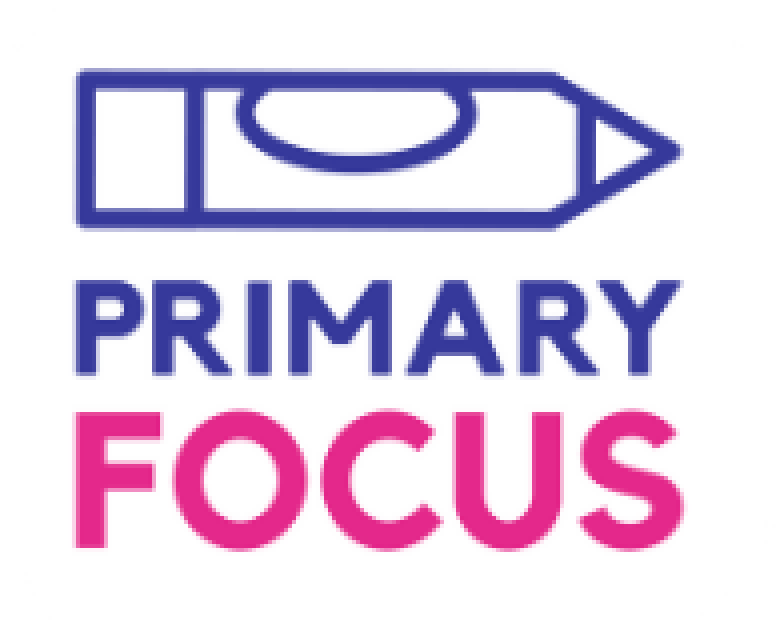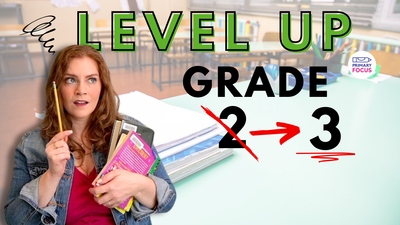
Should the United States Abolish the Department of Education? It's all the rage in the republican party- but would that really mean? This video takes a look at the big picture of what the Department of Education does, what it does not do, and what would happen if its funding went away.
Donald Trump has vowed to get rid of the DOE in his presidency. In March 2023 US Representatives Lauren Boebert and Thomas Massie put forward a bill to get rid of the Dept. of Education. They argue that the federal DoE is pushing a woke, liberal agenda and that states are better off on their own determining how to use education funds. But is this true?
Sign up for my newsletter: https://newsletter.primaryfocus.tv/
This video is made from a bird's eye point of view. There are a lot more specifics that I did not get into since school budgets are very specific by population, needs, and state laws/priorities. For example, states also help fund special education and more funds are needed from both state and federal governments (see first article below).
Important Note! CRT is NOT taught in K-12 schools anywhere. Critical Race Theory is a curriculum used in colleges, usually in law programs because it studies US laws. However, the term has been adapted to include curriculum that discusses race, gender, and equality in the United States. Interesting 2021 article on it here: https://www.nbcnews.com/news/us-news/teaching-critical-race-theory-isn-t-happening-classrooms-teachers-say-n1272945
Sources:
Some more information about special education and federal + state funding in North Carolina: https://www.wral.com/after-30-years-of-special-education-funding-limits-nc-parents-want-change/20681275/
Lauren Boebert wants to abolish the department of education: https://www.newsweek.com/lauren-boebert-says-she-wants-abolish-department-education-1790281
More comments from Lauren Boebert: https://youtu.be/stxMYSNsoXE
Percentage of federal and state funding by state: https://www.governing.com/archive/gov-state-education-spending-revenue-data.html
School Funding: https://www.pgpf.org/budget-basics/how-is-k-12-education-funded
Breakdown of US Dept of ED Spending: https://www.usaspending.gov/agency/department-of-education?fy=2023
US budget https://www.nationalpriorities.org/budget-basics/federal-budget-101/spending/
Abraham Lincoln on Education: https://www.lincolncottage.org/a-universal-right-for-all-lincoln-and-education/
Abraham Lincoln’s Morrill Act to establish public universities: https://www.lincolncottage.org/a-universal-right-for-all-lincoln-and-education/
Education and Political Party: https://www.pewresearch.org/politics/2016/04/26/a-wider-ideological-gap-between-more-and-less-educated-adults/
Voting by education: https://www.nytimes.com/2021/09/08/us/politics/how-college-graduates-vote.html
Trascript
Should we abolish the Department of Education? Hey, I'm Natalie, founder of Primary Focus. I bring the latest education, news, and tips on working for kids to you. You can sign up for my newsletter, which comes out every Tuesday and subscribe to my YouTube channel.
Last week, a United States congressperson from Colorado, Lauren Bobert made a comment that she would like to abolish the Department of Education and get the federal government out of schools. You hear the sentiment a lot these days, especially from Republicans.
But what would happen if we actually followed through? , as I follow this question, I will have some of my opinions in there, but everything comes from facts. I'll link all of my sources in the description.
How are American public schools funded
Public schools in the United States are funded by the federal, state, and local government.
The Federal or United States government provides some funds that will make it to your kids' school. Most of this is earmarked for very specific.
But they have very little say in how the school is actually run.
This is actually due to how our country is set up. You may have heard the term states rights.
Basically, anything that the US government doesn't have a specific law for is left up to the states to decide. So the federal government has a pretty hands off approach when it comes to educat. , they really step in to make sure all children have access to a free and fair public education and generally leave it at that.
This is why almost 15 years later, people are still talking about the common Core standards, which wasn't even mandated. It was an opt-in program for states.
People are still talking about it because the federal government almost never does that kind of thing.
And there was a lot of discussion at the state level about if it would be effective. Within a few years, most states had opted out of Common Core and went ahead and rewrote their own. This is also why it feels like a mess every time. Major education policy is rolled out. Remember, race to the top and no Child Left Behind.
These elicited major eye rolls from the public for a variety of reasons.
People often say the program didn't work for their specific state, and I'm not really sure it was a right fit for any of the states.
They were based off of standardized tests. When students take standardized tests, those do not come from the federal government.
Each state has their own tests, their own grading scale, and their own requirements.
So let me break down how the federal education budget works.
When you look at the budget for the US Department of Education, it covers more than just elementary and secondary school. They're also looking at things like Pell Grants in federal student loans, which helps supplement the price of college among other things.
But for the sake of this video, I'm just gonna zoom in at elementary and secondary education, so we're talking elementary school, middle school, and high school.
The amount of funding the federal government provides is generally determined by the amount of low-income families and the population of school-aged children.
It varies by state, but around 10% of a state's education budget will come from the federal government.
Now, this is actually far less than what I thought it was, but I guess the US is funding all 50 states, Washington, DC and Puerto Rico's public school systems. So that adds up to a lot of money.
If you had to cut five to 10% of your annual household income, you'd have to make some really big adjustments, especially if you are already living paycheck to pay.
Which American schools are,.
So the majority of the money that comes from the federal government is separated into three main categories. Title One funds, funds for Idea, and other funds and grants which go into things like the Headstart Early Education Program, magnet Schools, gifted and Talented Schools, some vocational programs, and the Indian education.
So if we get rid of federal funding, you can kiss goodbye to many magnet programs. Gifted and talented student programs and vocational schools.
Okay, so the next pot, let's talk about Title One funding. Title one. This money is specifically for children growing up in low income households. You may have heard of Title one schools and that they get extra resources for students.
This is all money that came directly from the federal government.
This money is determined by looking at the number of children growing up in low income households, the number of families that are receiving government assistance, and the number of children growing up in foster or group homes.
So if we get rid of it, you can kiss goodbye to Title One schools and all of the related funding that helps children growing up in or near poverty in the United.
Title one schools have reduced class sizes money for extra support staff. They often have a social worker on campus and sometimes they benefit from community support, like English language classes for parents of students. They connect families to important community support and do so much more than educate children.
There are countless nonprofits and charities that directly support Title One schools and get their funding because they support Title one schools. This can include things like free preschool, afterschool programs, and free meals. So if you remove that funding, you are threatening an entire ecosystem of support for that school community.
Children only know what they grow up with, and so if you're growing up in a household that has no extra income for activities, vacations, and experiences, you might not know the world beyond your door. , this funding allows schools to expose children to new opportunities and let them choose the big life that they want.
The other main source of money is for idea. This stands for the Individuals with Disabilities Education Act. This was a landmark act that insured children with disabilities are guaranteed an appropriate public education and the services to provide that.
There was a time not too long ago, where children were just shipped off to institutions. Parents had to pay out of pocket for specialist services, and children were not guaranteed admitted to.
This also includes services like speech and occupational therapy. Countless children are enrolled in these programs and graduate within a few years, but they may not have improved without the free support provided during the school day that American Public Schools guarantee .
Our country barely provides enough support for those living with disabilities, and it really scares me to think that there are people that wanna actively reject the money that our children need to grow up and live independently as.
And let me tell you, this is expensive.
Like most things in education, it is not a perfect system and it could use more funding.
Think about how all these programs could do better. Do you really think that we could improve them by cutting funding?
What the US education system needs to thrive is more funding, not cutting it off entirely.
Marker
And so remove funding, and we're pretty much back to an ableist, racist, classist society. Can't you hear the state representatives arguing about whether it's worth to fund these kids?
Okay, but what about from the angle that the federal government is trying to mess with children's minds? Sorry, representative Bobert. I know there's a lot of talk about critical race theory, which by the way, isn't a bad thing. I mean, growing up in Virginia, my fifth grade teacher told us slavery wasn't that bad and a lot of accounts were dramatized, but all of this critical race theory is not going to be coming from the federal government.
It's actually being adopted by state and by local governments, so you've got more power paying attention to your local school board meeting than you do caring about what people in Washington are up to.
The federal government doesn't mandate any books, curriculum or, or anything like that. The Common Core standards are essentially a checklist for teachers. There's no curriculum attached to it. A few suggestions maybe, but truly it's, it's up to the local school board.
And they don't even have social studies or history standards in the Common Core. Since each state and each region has such a unique history, they left it up to the states to decide what's being taught.
They only give guidance on how students should be able to analyze historical documents, but don't even specify what documents they should.
So, if the federal government isn't controlling curriculum, then why are people going after the Department of Education? Money and Power.
Republicans are trying to control money and gain more state power, even if it means oppressing people. And yes, I'm being generous here .
The most basic argument of being Republican is wanting the lowest taxes possible and for states to have way more power than the federal government. And what is one of the most expensive public services offered to a. Public education,
education is expensive. It's a public service, and I should mention here, it's also a human right. You will not make a profit off of public schools. It's considered an investment in the future and in the United States case, an investment in democracy.
In fact, one of the reasons why Abraham Lincoln pushed public education being available for all citizens was that it actually is an investment in democracy. More educated people are able to read, analyze, vote, and care about what is going on in their country.
For me, I see these investments as beneficial, but if your bottom line is cutting the budget and you could pick from anywhere. Yeah. Yeah. I guess it has to be education
For me, I see these investments as beneficial, but if your bottom line is balancing the budget, And you could make cuts from anywhere, I guess. Yeah. Yeah. I guess it must be education.
Even though the federal government is only providing between five and 10% of a state's education budget, it is so needed.
Most states are barely footing the bill for education. And in places like North Carolina, even keeping the funding we have for education is contested.
the sentiment is that we are expensive and we're a pain, and that we need to stretch out our budget as far as possible. Educators have to fight, beg, and justify every last penny that they can get in their budget, and then rely on pta, fundraisers, and nonprofits to fill in the blanks.
The fact is right wing politicians' arguments to abolish the Department of Education and punish the federal government for pushing a liberal agenda in schools is just wrong.
Literally they're wrong. The federal government has very little to do with the day-to-day functioning of schools. What they do is provide children really important funding earmarked for our most at-risk children.
People that are screaming that the federal government is messing with our schools do not understand how schools work or how they are funded. Do not trust them and instead listen to actual educators that have recently spent time in the classroom.
Oh, and one more thing. When I mention Republicans are trying to stay in power.
Frankly, less educated people tend to vote Republican, so keeping people oppressed and angry helps with their elections.
And so if you're mad about what's being taught in public schools, you need to reach out to your local government.
If you're mad about how public schools are being funded, you need to reach out to your state government.
And if you wanna Pell Grant information about the Headstart program or wanna understand your rights as a parent of a child with disabilities, then you can reach out to the federal government.
And if you've got something to say, comment.
. Thanks for watching Primary Focus. If you liked this, sign up for my newsletter. It comes out every Tuesday with more education news. My name's Natalie. See you next time.
The Primary Focus newsletter shares the clarity, language, and support every parent needs to feel confident - right in your inbox.






